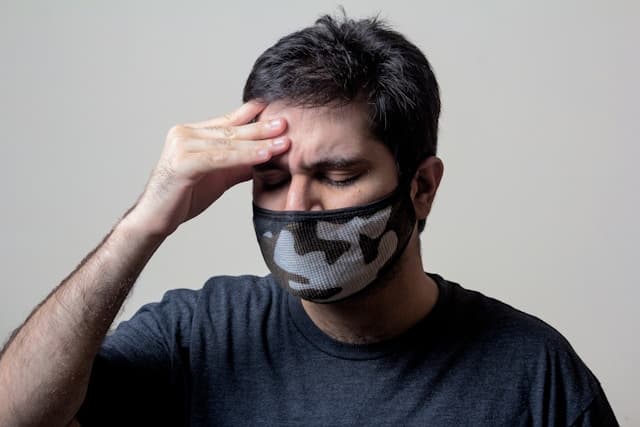
You have eczema and you're wondering why it's not going away. You tried moisturisers and it's not doing anything. You even tried a steroid ointment, which might've worked for a bit, but then it came right back. Why?
To get to why, we have to first understand what eczema is and why we get eczema.
What is eczema?
Eczema is a type of dermatitis, which means skin ("derma") inflammation ("itis"). Understanding this is important because inflammatory skin conditions are treated very differently from infectious skin conditions. Inflammation happens when our immune system is active, so to treat eczema we must reduce the immune system's activity. Sometimes inflammation is a good thing, such as when we need to fight off infection or make sure the natural bacteria on our body is not overgrowing. But it can also be a bad thing if there's too much inflammation or if there doesn't need to be inflammation. Medications like steroids are call "immunomodulators" because they modulate our immune system's activity.
Why do I have eczema?
Skin Barrier Problems: Your skin's outer layer acts as a protective barrier. In people with eczema, this barrier doesn't work as well as it should. This can lead to dry skin and allow irritants and allergens to penetrate more easily. Your body then responds by launching an immune response.
Immune System Issues: People with eczema have an overactive immune response in their skin.
Skin Microbiome Changes: Everyone's skin is colonized by bacteria. If the balance of bacteria is altered, with an overgrowth of certain types (especially Staphylococcus aureus), this can contribute to why your skin is inflammed.
Environmental Triggers: Various environmental factors can trigger or worsen eczema flares. The obvious ones are irritants and allergens. But even stress and climate conditions can be triggers.
Genetics: Eczema tends to run in families. Scientists have identified several genes that can increase the risk of developing eczema, especially one called "filaggrin" which is important for skin barrier function.
Why is my eczema not going away?
Here are some reasons why it might not be going away:
It's not eczema: It sounds silly, but you want to be sure you actually have eczema.
You're using moisturisers wrong: Moisturisers can be boiled down to lotions, creams and ointments. Lotions contain the most water content, creams contain less water content, and ointments contains nearly no water content. You know this because lotion pours out of the bottle, but not ointments. We previously discussed that if the skin is dry then it can cause the skin to crack, which makes it easier for irritants and allergens penetrate past our skin. So your goal is to make sure the skin is moist through the day. You make the skin moist by adding water to it. If you use a lotion, then there's already water in the lotion. But if you use a ointment, you'll need to dampen the skin with water first before you apply the ointment. If your skin is dry before you use an ointment, it's going to stay dry. Parents who have kids with eczema are often recommended to apply a wet wrap to areas where they have eczema, which really is just a wrap that's wet. For information on how to apply wet wraps, check step-by-step instructions from the National Eczema Association.
You're using the wrong moisturiser: Again, your goal is to make sure the skin is moist through the day. We now know how to make our skin moist, but how do we make sure it continues this way through the day? This is where moisturiser selection becomes important. All moisturisers create a barrier that blocks water from evaporating off our skin. Lotions have the least barrier effect, creams have a moderate effect, and ointments have the greatest effect. If you notice your skin progressively becomes dry through the day, you'll want to use an ointment or a cream to reduce evaporation. It won't matter that your skin is moist if it's going to evaporate in less than an hour.
The treatment isn't strong enough: Sometimes the inflammation is just too high. Steroids that we apply onto our skin are called topical steroids. These come in different potency. The lowest potency is something like hydrocortisone 1% cream, which is available over the counter without a prescription in certain countries. The highest potency is something like clobetasol propionate 0.05%, which typically require a prescription.
You're stuck in a vicious cycle: Sometimes we can end up in a vicious cycle called the itch-scratch cycle. The itch-scratch cycle can be summarized as this: you feel itchy so you scratch your skin, but this irritates the skin so it becomes more inflammed, and more inflammation causes it to become more itchy, and now you scratch more.
There's bacterial overgrowth on your skin: Doctors sometimes recommend bleach baths to control bacterial overgrowth. This is more commonly used for children. You want to be careful with bleach baths and make sure you know what you're doing.
You're continuously exposed to triggers: It seems obvious, but if you're continuously being exposed to irritants and allergens, you're going to continue to have issues with eczema. If you suspect there's triggers but you have difficulty identifying them, try doing a diary or log your flare ups in a document and write down suspected triggers when you're experiencing the flare up. This helps identify a trend to find the problem.
It's not any of these: The ones listed above are the most common reasons. If you think this is you or if you have any questions about eczema in general, send us a message on Plumfin.
References
Stanway A, Jarrett P. Atopic dermatitis. DermNet NZ [Internet]. 2021 Feb [Updated 2023 May]. Available from: https://dermnetnz.org/topics/atopic-dermatitis
Paller AS, Butala S, Howe W. Treatment of atopic dermatitis (eczema). In: Dellavalle RP, Levy ML, Fowler J, eds. UpToDate. Waltham, MA: UpToDate Inc. Updated September 18, 2024. Accessed October 22, 2024. Available from: https://www.uptodate.com/contents/treatment-of-atopic-dermatitis-eczema

